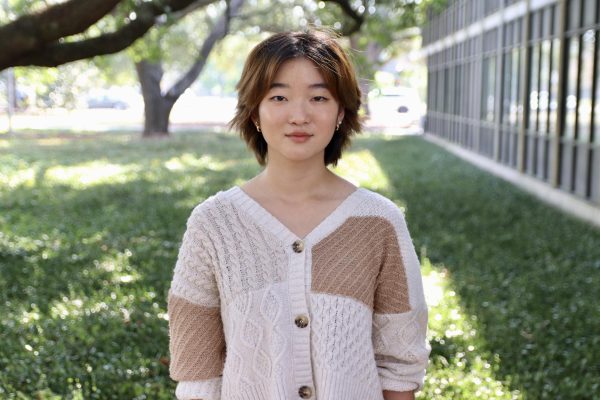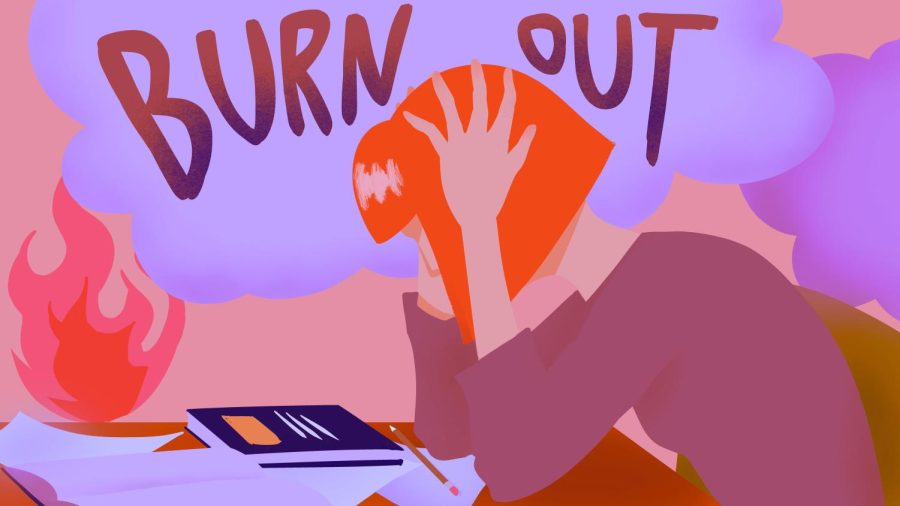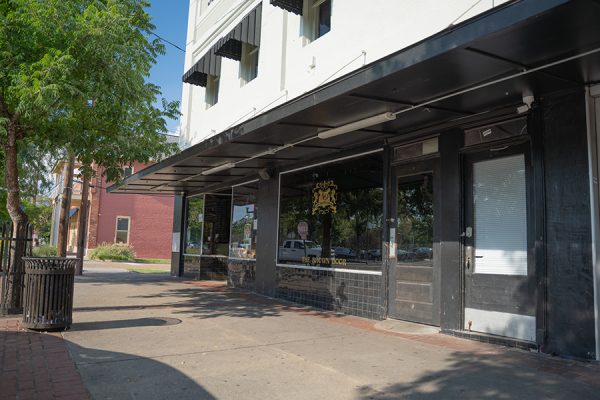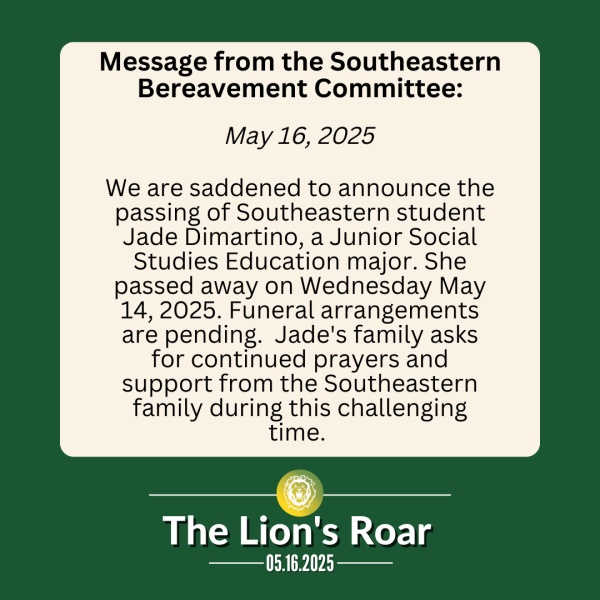Burnout: How to notice and treat it
With finals week fast approaching, students are doing everything they can to prepare for the upcoming tests, projects, and assignments due at the end of the semester.
However, students have to consider whether constantly working too hard can do more harm than good in the long run.
This is a phenomenon that many students and experts like to call “burnout.” According to researcher Christina Meslach, PhD, there are three ways that individuals can recognize burnout: physical and emotional exhaustion, cynicism and detachment and not feeling accomplished or impactful.
Conor White, a sophomore biological sciences major, talked about how mentally challenging studying can be.
“The hardest aspect of studying is towards the end of the semester I am never in the comfort of my own home with my family and friends. I am always in Sims Library going over my material,” White said.
Burnout can often mimic other conditions such as depression and stress, causing detrimental effects on one’s physical health as well.
Catherine Bolette, a student intern at the University Counseling Center, discussed the physical effects one may experience from burnout.
“When experiencing long periods of burnout, one may experience physical side effects such as feeling exhausted and drained all the time, headaches and muscle pain, changes in appetite and sleep routine, and frequently becoming sick due to weak immunity,” Bolette said.
This can make it hard for many students at Southeastern to study effectively or do many of their daily responsibilities, such as attending their classes.
Brennan Labatut, a senior accounting major, talked about the most challenging aspect of studying for him.
“The hardest aspect of studying for finals is the cumulative tests. You have to apply everything you learned throughout the whole semester. Another aspect is the slow WiFi in Garrett Hall, it makes it hard for me to look at my notes and lectures,” he said.
It can be very difficult to stop burnout once it occurs. However, Bolette discussed steps one can take to recover from a burnout session.
“It is not as easy as one may think, it can take anywhere from 18 months to five years to recover. One of the most efficient ways is to practice breathing and grounding exercises in addition to journaling, as these can calm the central nervous system. Another way is to reach out to friends and family and not isolate yourself,” Bolette said.
Students suffering from burnout or its effects should contact the University Counseling Center by calling (985) 549-3894, emailing slucc@selu.edu, or scheduling an appointment at their office.
Your donation will support The Lion's Roar student journalists at Southeastern Louisiana University.
In addition, your contribution will allow us to cover our annual website hosting costs.
No gift is too small.

Rachel is a Strategic Communications Major from Baton Rouge, LA. After starting the Lion's Roar in April 2021, she has aimed for success in her social...

Yumi Domangue is a double major in mechatronics engineering technology and new media and animation. She joined Student Publications in the Fall of 2021...






